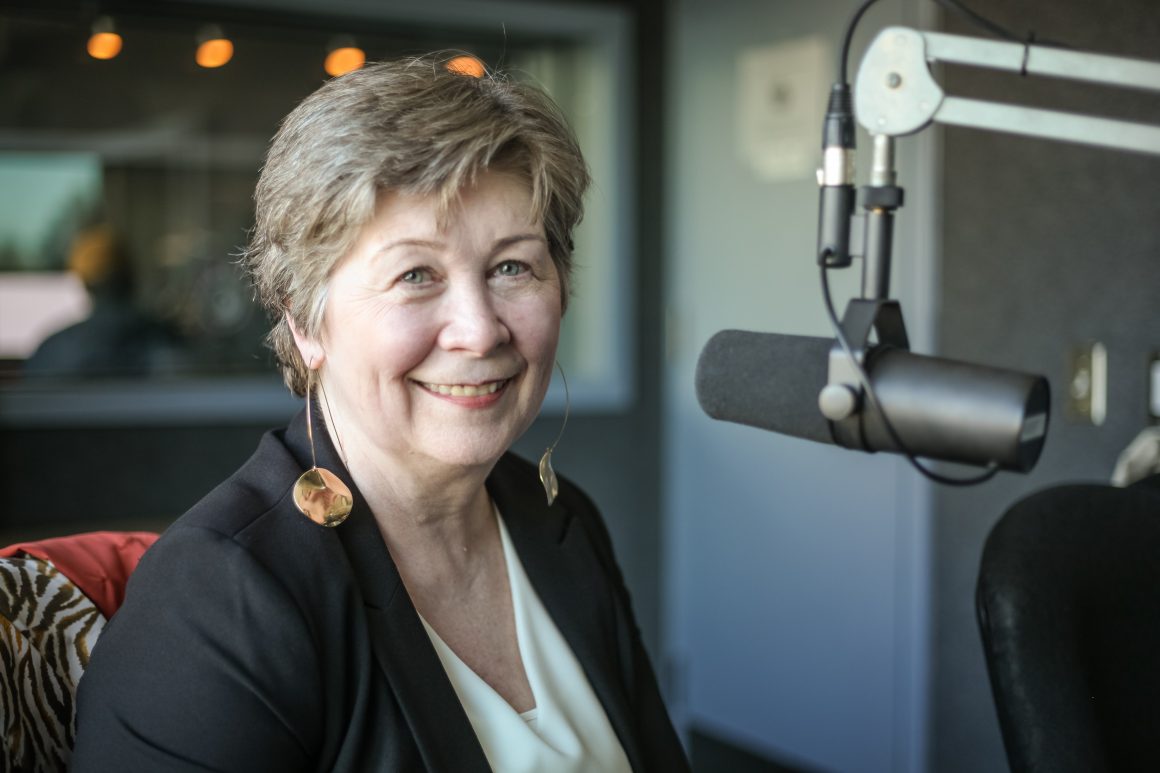
Calgary-Varsity Q&As: New Democratic Party candidate Anne McGrath
Anne McGrath is the New Democratic Party candidate in Calgary-Varsity. She is currently the executive director of Premier Rachel Notley’s Southern Alberta office.
The Gauntlet: Why should students vote for you?
Anne McGrath: Well, I think students have a very important choice ahead of them. For one thing, students on campus must recognize that if [the NDP] had not won in 2015, there were going to be deep cuts to post-secondary education. As a result of having an NDP government for the last three-and-a-half, four years, there has been not only sustained funding but there has been increased investment in post-secondary education, particularly on this campus. And of course, affordability as well is a big part of who is able to access post-secondary education and this government froze tuition fees so that most students will have realized a savings over the period of the government of about $2,000.
Gauntlet: You alluded to how post-secondary tuition in Alberta has been tied to the rate of inflation and previously has been frozen, which will extend for another year. Do you think that this is an appropriate end solution for students, and if not, how would you approach post-secondary tuition policy if you were elected?
McGrath: I think over time it would be good to see increases in tuition limited and even decline, because I think it is and can be a barrier for students in attending. It is a small part of the funding formula right now, but a significant thing for many, many students. I’m actually very committed to making sure post-secondary education is accessible to everybody who is able to attend and who wants to attend.
Gauntlet: Have you put much thought into international student tuition, which is not currently regulated for students?
McGrath: International tuition, I have not looked at it recently, to be honest. But I do know that having international students at a university only benefits a university. We should be attracting international students because it not only benefits themselves and the communities they’re coming from but they also enrich the student community here and enrich the classroom experience.
Gauntlet: More broadly, can you tell me about the issues you think are facing residents of Calgary-Varsity that are most important in this election?
McGrath: I think the issues in Calgary-Varsity are the same as the issues anywhere. I think it’s around jobs and the economy. It’s around what kind of programs and services we have as a society. And most fundamentally, the question for residents of Calgary-Varsity and all around the province is, who do you want to be the premier? There’s a very stark choice, I believe, in this next election.
We can either have Jason Kenney, who I believe is dedicated to making cuts to things that are important to us, who has questionable attitudes towards vulnerable groups, has been on the record in opposition to basic women’s rights, LGBTQ rights, those kinds of things. Who, I think, wants to give very big tax giveaways to the richest and most powerful in our society at the expense of others and who has no plan to diversify the economy and take us out of the boom and bust cycle. The choice is between that kind of leadership and the leadership of Rachel Notley, who inherited a very difficult situation and has done an excellent job, has invested in some very important programs, is steadily bringing down the deficit and who is taking action on diversifying our economy.
Gauntlet: To move back to a few youth-related and student-related issues, I’m curious about your thoughts on a lower minimum wage for youth workers.
McGrath: Fundamentally, a lower minimum wage for young people means that it’s not a minimum wage. A minimum wage is a minimum wage and I don’t think there are two classes of citizens. I think it’s actually discriminatory to have a lower minimum wage for youth. I think it’s absolutely wrong and Rachel Notley is on record saying that will never happen under her watch.
Gauntlet: The two largest universities in Alberta are now reaching deferred maintenance costs over $1.5 billion. Do you think that this needs to be addressed, and if so, how?
McGrath: Well, we have been addressing it, and you can see it in things like the upgrades to the MacKimmie Complex and other areas on campus. One of the things that we did when we were first forming government in 2015 was, instead of making big cuts we decided to invest and in particular, to invest in capital infrastructure, which is the place where deferred maintenance costs come from. We’re very committed to capital infrastructure for a number of reasons. One is that it makes economic sense and the other is that we need those things. But also, in addition to that, when you have capital infrastructure programs, you have to staff them and you have to fund them. In this riding, for instance, we’re building a cancer care centre that was promised over and over again by previous governments and was never built. We will build it and we will staff it.
This interview has been edited for clarity and brevity.
Read our other candidate interviews here:
United Conservative Party candidate Jason Copping
Green Party candidate Cheryle Chagnon-Greyeyes
